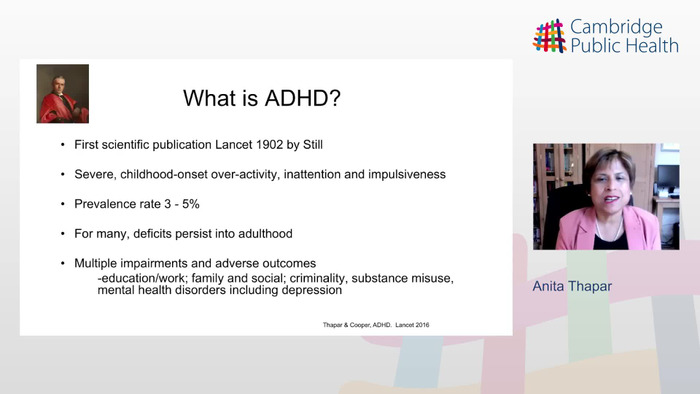Abstract
Although ADHD is highly heritable, environmental factors also appear to contribute to ADHD risk. Identifying environmental risk exposures is important as if they are genuinely causal they can be targeted to help prevent ADHD in the population. To date, most studies have been observational and implicated intra-uterine exposures such as toxins, preterm birth as well as early childhood adversities. However findings from observational studies do not necessarily mean that the exposures are causal. Quasi-experimental studies including genetic designs so far have shown that maternal cigarette smoking in pregnancy has causal risk effects on infant health including low birth weight but does not appear to have causal effects on ADHD. Preterm birth and very severe early deprivation also appears to be causal but that does not necessarily apply to milder forms of adversity. Discordant family relationships appear to arise as a result of ADHD (reverse causation).
Video




